Is this classic book still worth reading today? Absolutely! While social norms may change from generation to generation, human psychology is timeless. That’s why How to Win Friends and Influence People is still highly regarded and widely recommended even today.
Fundamentally, what people desire today is the same as it was in 1936: belonging, love, respect, security, and significance. And if we can understand how other people’s minds work, then we can work with their feelings and emotions, instead of pushing against them. That can help us become stronger leaders in our relationships, both at home and at work.
How to Win Friends and Influence People is divided into four parts:
- Basic people skills, also called “handling people.”
- Charisma, or making people like you.
- Influence, or winning people over to your thinking.
- Leadership, “changing people without resentment.”
About the author
Dale Carnegie was born in 1888 in Missouri and grew up in a poor farming family. As a teenager, he worked hard to take care of the pigs and cows on the farm. Despite his humble beginnings, he managed to graduate high school and Teacher’s College and become a successful salesman of bacon, lard, and soap.
It was while teaching public speaking courses at the YMCA that Carnegie began his career as a self-help guru. His lectures were so popular that he started traveling and speaking in other cities, eventually reaching an audience of over 450,000 people through his courses. Carnegie also wrote several books based on his teachings, which have sold millions of copies and continue to be popular today.
1. Apply and Repeat: We improve only through action and self-reflection
How to Win Friends and Influence People begins with “nine suggestions” to get the most value out of the book. I believe the 9 tips can be summed up as:
- Apply what you’re learning in real life, as you learn it.
- Regularly review what you learned, so you don’t forget it.
A few more tips offered in the first chapter include: highlighting, re-reading, and journaling. When we’re trying to learn anything new, we’ve gotta try a lot of different methods and see what works for us.
Of course, the best way to learn any new knowledge is to use it—then it really sticks! Trying and failing. That’s how we really learn most things.
For example, sometimes I like to play video games. The best way to learn how to play any game… is by picking up the controller and playing it! Listening to someone lecture for 5 hours about the theory behind the game wouldn’t be helpful. Gotta jump into the pool, trusting we’ll learn how to swim through our intuition and pattern recognition.
You’ll hear some online critics say a lot of what’s in this book is common sense. That may be true. But the real question is: are we following these rules… when we’re actually talking with people? That is the most important part, folks!
Another classic self improvement book is Think and Grow Rich by Napoleon Hill. It also emphasized the importance of persistent effort, saying: “Wishing will not bring riches. But desiring riches with a state of mind that becomes an obsession, then planning definite ways and means to acquire riches, and backing those plans with persistence which does not recognize failure, will bring riches.”
Read more in our summary of Think and Grow Rich by Napoleon Hill
To really learn this book, we must regularly study the ideas and—most importantly—apply the tips in real life. Over and over again, until they become automatic habits.
2. Be Enthusiastic: Sincere friendliness is a contagious emotion
Everyone likes dogs, right? I mean, who isn’t happy to see a good dog? Why? Because dogs are always happy to see us! At home, they greet us with excitement and curiosity. And that feels good, man!
In the same way, we can increase our charisma through honest enthusiasm and interest, whenever we are meeting someone new.
How can we be enthusiastic towards others? Dale Carnegie offers some quick tips:
- Smile. Yup—show those pearly whites! When we look happy to meet someone, they will naturally feel glad to see us too. This is probably the simplest tip in the book, but how many people always seem to forget to smile? (Especially when we’re feeling a bit nervous!)
- Show genuine interest. Are you curious about other people? Or do you give off a vibe like you’re too good for everyone? This is not about faking anything, but about really wanting a better connection with the human in front of you. And the best way to show genuine interest is to…
- Listen more than you talk. Listening is not rocket science. Make sure you’re asking questions that you’re honestly curious about, and let them talk more than you…
Stephen Covey wrote the incredibly popular self-help book The 7 Habits of Highly Effective People. There he said most people fail at connecting with others because they don’t know how to REALLY listen. Instead, our mind is often occupied with thinking about what we will say next to respond.
Covey wrote “Most people do not listen with the intent to understand; they listen with the intent to reply.” And his solution is for us to “Seek first to understand, then to be understood.” For example, we can demonstrate that we heard the other person by paraphrasing what they said—that means repeating their main point in our own words.
When they feel we understood their concerns, they will open up to hearing our thoughts. That is the big secret of communication. Why aren’t we taught this in schools!?!! That is what I want to know!
Just like a friendly, furry dog, we can become more socially magnetic to others through enthusiasm and curiosity. We can show genuine interest in another person by smiling, listening more than we speak, and asking questions.
3. Make Them Feel Bigger: Everyone has a primary need to feel important
People deeply need a feeling of importance. We all crave to be noticed and appreciated. Dale Carnegie considers this idea so important, that he repeats the exact phrase “a feeling of importance” 28 times in the book!
When we give others a feeling of importance, then we become far more likeable to them. On the other hand, when we make another person feel smaller, they will dislike us automatically.
Here are some tips for how to apply this idea:
- Treat everyone with respect and politeness. The great moral teachers gave us the Golden Rule (Wiki): “Treat others the way you’d like to be treated.” This is especially important (and especially noticed!) when we’re talking to people in a lower social position than us—a waiter, little kids, a subordinate at work.
- Give sincere compliments. This is about making an effort to notice things about other people that we sincerely admire. Unfortunately, it is usually other people’s flaws that grab our attention, so we have to make an active effort to notice the good.
- Use their name. Everybody loves to hear their own name being spoken. Just don’t overdo it—you don’t want to sound ridiculous like: “Wow Bob, that’s so great Bob, I’m really understanding you Bob!”
One of the deepest human needs is a feeling of importance. When we give others that feeling, they like us more in return. We can do it by: using their name, offering sincere compliments, and treating others how we’d like to be treated.
4. Never Attack Their Pride: Direct confrontation rarely changes anyone’s mind
As a young man, Dale Carnegie often contradicted, debated, and argued with others. Over time, he became wiser and stopped doing that, because he learned that it is really impossible to “win” an argument.
Because even if you appear to defeat their argument, the confrontation will create resentment and damage the relationship long into the future.
When dealing with people, let us remember we are not dealing with creatures of logic. We are dealing with creatures of emotion, creatures bristling with prejudices and motivated by pride and vanity.
The good news is, we CAN influence others with more gentleness and sophistication. Here are some tips:
- Never give direct criticism or disapproval. When we condemn someone, that makes us feel better, but rarely accomplishes anything. Because even the worst criminals find ways of justifying what they did in their minds. (The book shares a striking quote from the brutal gangster Al Capone, who private perception of himself was “helping [people] have a good time.”)
- Mention mistakes indirectly. Instead of pointing out what some people are doing wrong, instead draw attention and praise towards positive examples. Imagine one teacher is always complaining about students being late, and another teacher is complimenting the students who show up on time. (Perhaps even offering a reward.) Whose class would kids rather go to?
- Use questions to guide the conversation. Socrates was probably the most important philosopher ever. What was really unique about him was that he never told people they were wrong. Instead, he asked lots of questions, questions that guided the other person little-by-little into changing their own mind. This “Socratic Method” (ThoughtCo.com) is still taught in law schools today.
- Confess that you may be wrong. When we are disagreeing with someone, we can lower defensiveness by showing humility at the start. As a modern example, I’ve noticed the popular comedian and podcaster Joe Rogan may say “I’m kind of dumb…” before offering his opinion on a serious issue. It’s kind of a paradox: A statement of humility makes others feel more comfortable considering our point of view.
We accomplish little by arguing, criticizing, or telling people they’re wrong. More often, we only provoke defensiveness and damage the relationship. Instead, we can use a more gentle, indirect approach—by showing humility, admitting we may be wrong, and guiding them with questions.
5. Assume Good Intentions: Bring attention to the best, most virtuous part of their character
Hollywood movies paint a simple picture of the world. The good guys versus the bad guys. The heroes dressed in bright capes, versus the villains in shiny black suits.
Of course, we all think of ourselves as the good guys in our real lives. And that means the other person must be the bad guy, right? Nope, the world ain’t that simple.
Here are some more fabulous tips from Ol’ Dale:
- Assume they have positive motivations. Most things we do have multiple motivations, both selfish and selfless. If we want to alienate someone quickly, then we should assume they only act from selfish, negative motivations.
- Offer friendly admiration first. In a negotiation, most of us set ourselves up as a hostile opponent. Instead, what if we began with recognizing the best in the other person? In the book, someone was able to re-negotiate a rent increase with their landlord through first praising the positive things the landlord was doing.
- Pay close attention to understand their real needs…
When most people think of a prosperous salesman, they probably imagine a smooth talker whose mouth can’t stop moving. But according to sales expert Brian Tracy, that image could not be farther from the truth.
Most of the greatest salespeople, Brian says, spend most of their time listening. That is how they uncover each person’s unique needs or “hot button” desires. That is important information that shapes their sales presentation, including what features of their product to highlight.
Read more in our summary of The Psychology of Selling by Brian Tracy
This section reminds me of an idea from psychology called “Theory of Mind.” You see, we all carry around a “Theory of Mind” which is kind of like our inner map of how other people’s minds work. Having a good Theory of Mind (Nature.com) helps us understand other people and predict how they will react to what we say. It helps us to say the right things at the appropriate times.
When we better understand how our words affect others, what we’re really doing is drawing a more accurate “Theory of Mind” and increasing our “emotional intelligence”—that’s a term other psychologists use.
We can communicate more effectively do this: offering friendly admiration at the beginning,assuming they are acting from positive motivations, and asking questions about what they want.
6. Lead with Encouragement: Offer appreciation to those around you, easily and often
Should we try to motivate people through criticism or praise?
Imagine you were the boss at work, and your people were not doing their work properly. What should you do?
At first, criticism may feel like the more effective method because it does create a strong motivation quickly. Nobody liked to be criticized publicly!
However, we may accomplish more over the long term through a positive approach. Charles Schwab was one of America’s greatest businessmen 100 years ago, and he said the best way to motivate employees is by creating enthusiasm. How? With a lot of appreciation and encouragement.
What about great businesspeople today? Well, Bob Iger was recently the CEO of Disney for 15 years. He also struggled with balancing positive encouragement and negative critical feedback. In his autobiography, Iger wrote, “It’s a delicate thing, finding the balance between demanding that your people perform and not instilling a fear of failure in them.”
After decades of experience in leadership, Bob Iger distilled the essence of his approach in this rule: “Don’t start negatively, and don’t start small.” When offering feedback to others, he would always begin with something positive and focus on the big picture. For example, when speaking with the director of Black Panther movie for the first time, he began with communicating his faith in the director to do a good job… only later offering some advice for the direction of the movie.
Here are some practical tips for positive leadership from How to Win Friends and Influence People:
- Don’t give orders, but ask for suggestions. For example, if you need to improve how an employee is writing emails, you could ask “Do you think this is the best way to write this paragraph?” They will understand the message that the paragraph needs to be improved, while feeling respected and valued for their input.
- Celebrate small improvements often. When kids are learning or dogs are being trained, they are given lots of enthusiastic praise, which motivates them to continue. Let us realize that adults are not wired much differently!
- Give them an important title. In the book, a store owner made a careless employee into the official “Price Tag Supervisor” which immediately improved their work behavior. The right title can make an employee take more pride, ownership and responsibility in their work.
Productivity expert James Clear says that identity is often the foundation of our behavior. On the level of our personal life, we can often adopt new habits far more easily by taking on the IDENTITY of being a runner, cyclist, vegetarian, etc. Identity usually beats sheer willpower, in the long run.
Important business leaders say it’s better to motivate through appreciation and encouragement, not criticism. We do this by offering suggestions not orders, celebrating each small improvement, and giving respectful titles.
- Next time you’re in a conversation, ask yourself “what do this person know that I don’t?” A core principle in this book is being interested and enthusiastic towards people we meet. But what if the person is boring? Well, in my experience we can often make the choice to be curious and engaged, rather than bored, when our mind is open to how the other person is different from us.
- Look for 3 things to praise in others today. Normally, negative things grab our attention. (If you don’t believe me, then just look at the news headlines today!) But when we’re always pointing out flaws and criticizing, then others will feel resentful. Instead, what if we focused more on: what are they doing right? This is using the psychology of positive reinforcement, which is both effective and strengthens goodwill.
- When you need to criticize, mention your own flaws first. Sometimes we need to tell others they have done something wrong or poorly (At work, for example.) We can soften the impact of our feedback by first mentioning one of our own mistakes or learning experiences. This automatically lowers the other person’s defensiveness and opposition.


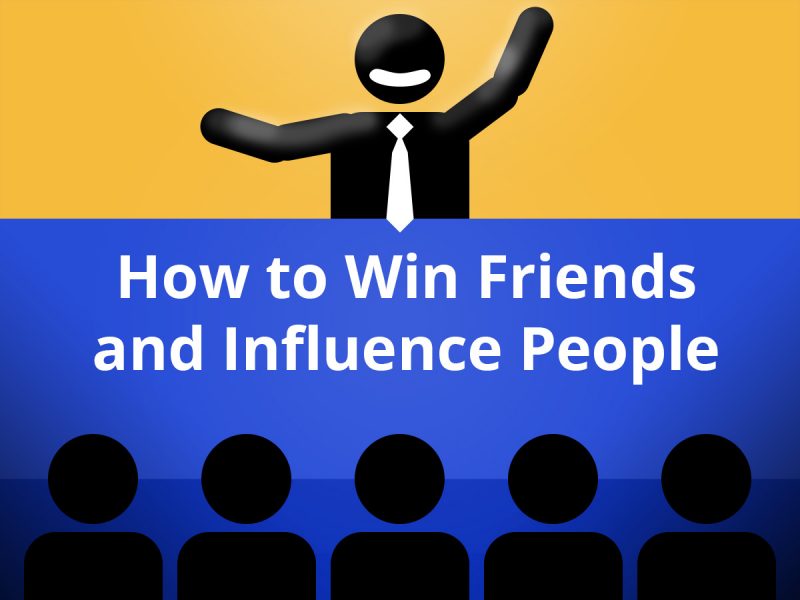
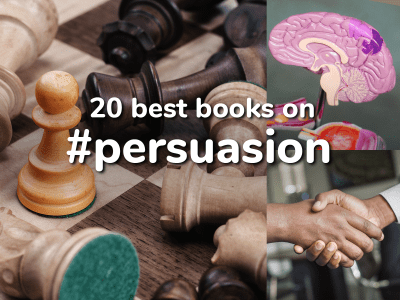

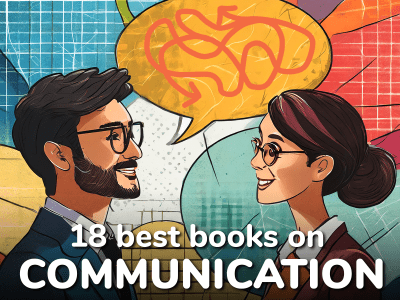
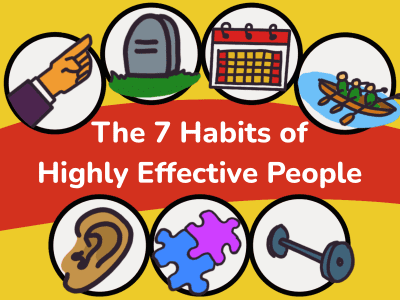









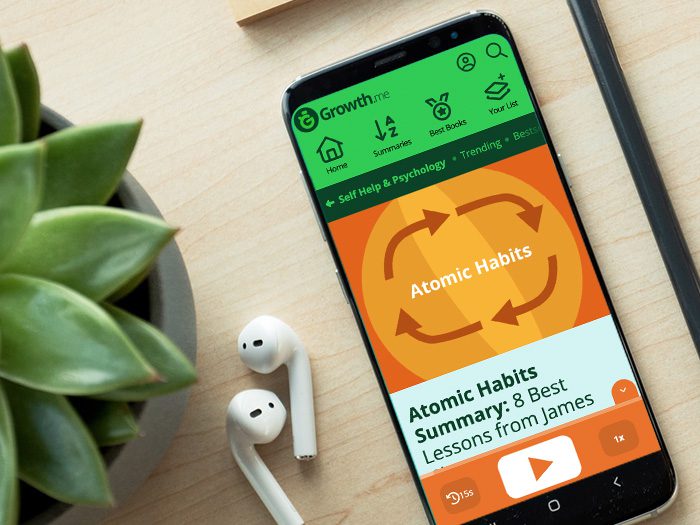
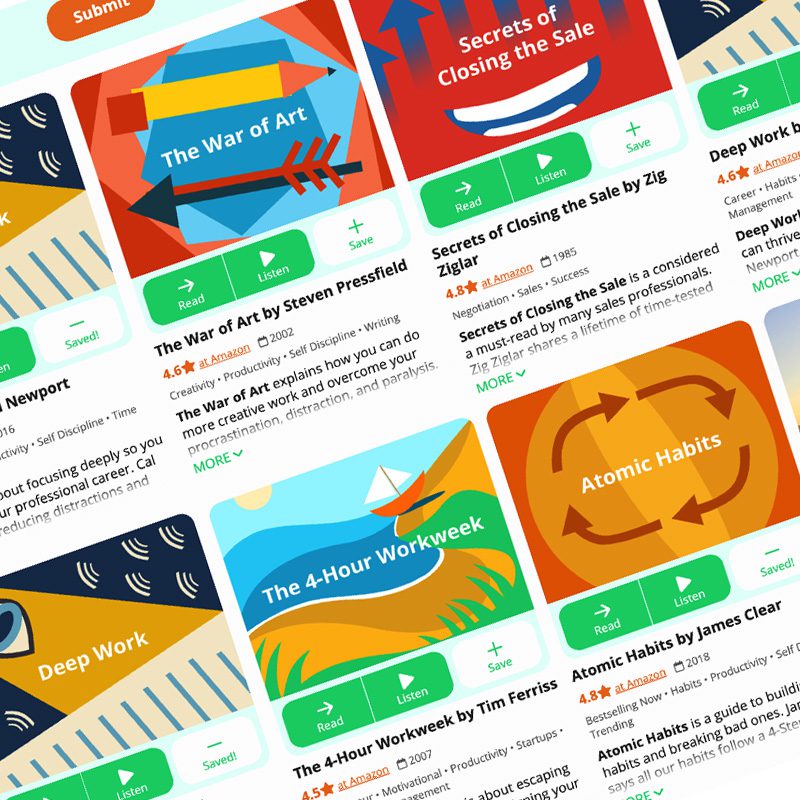
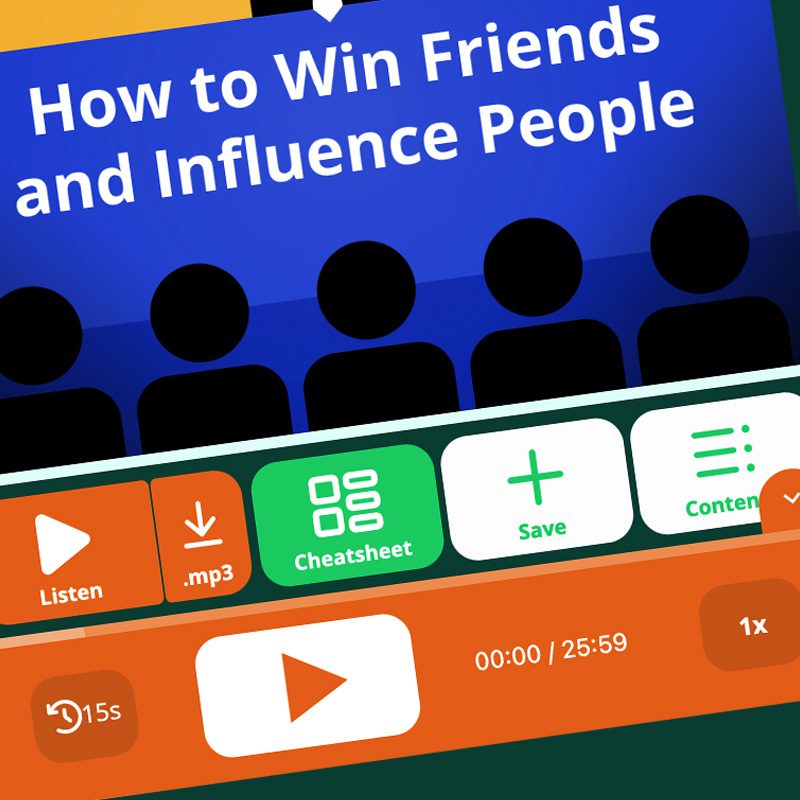
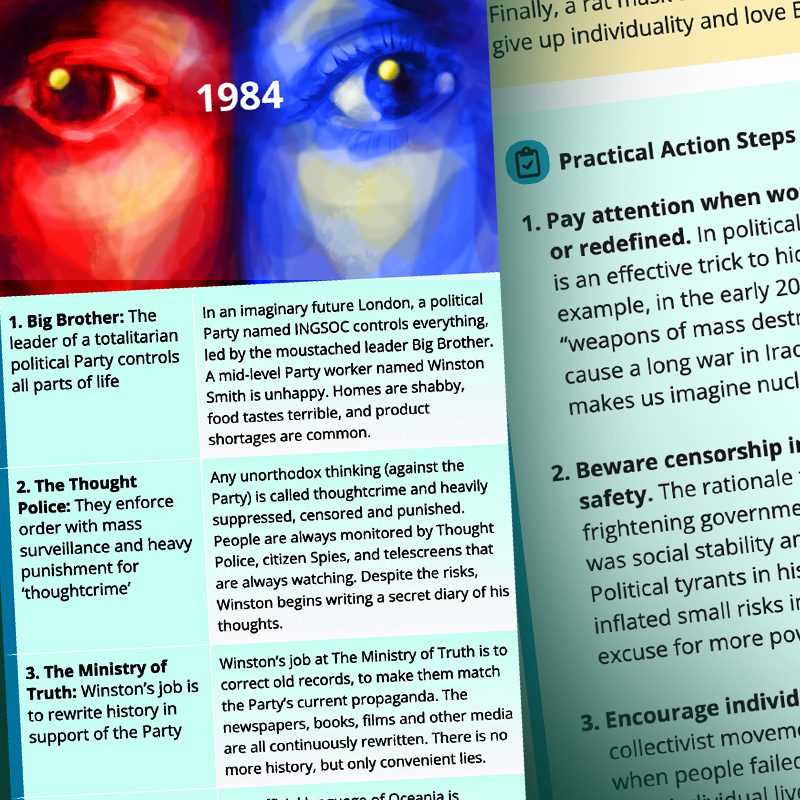


Community Notes